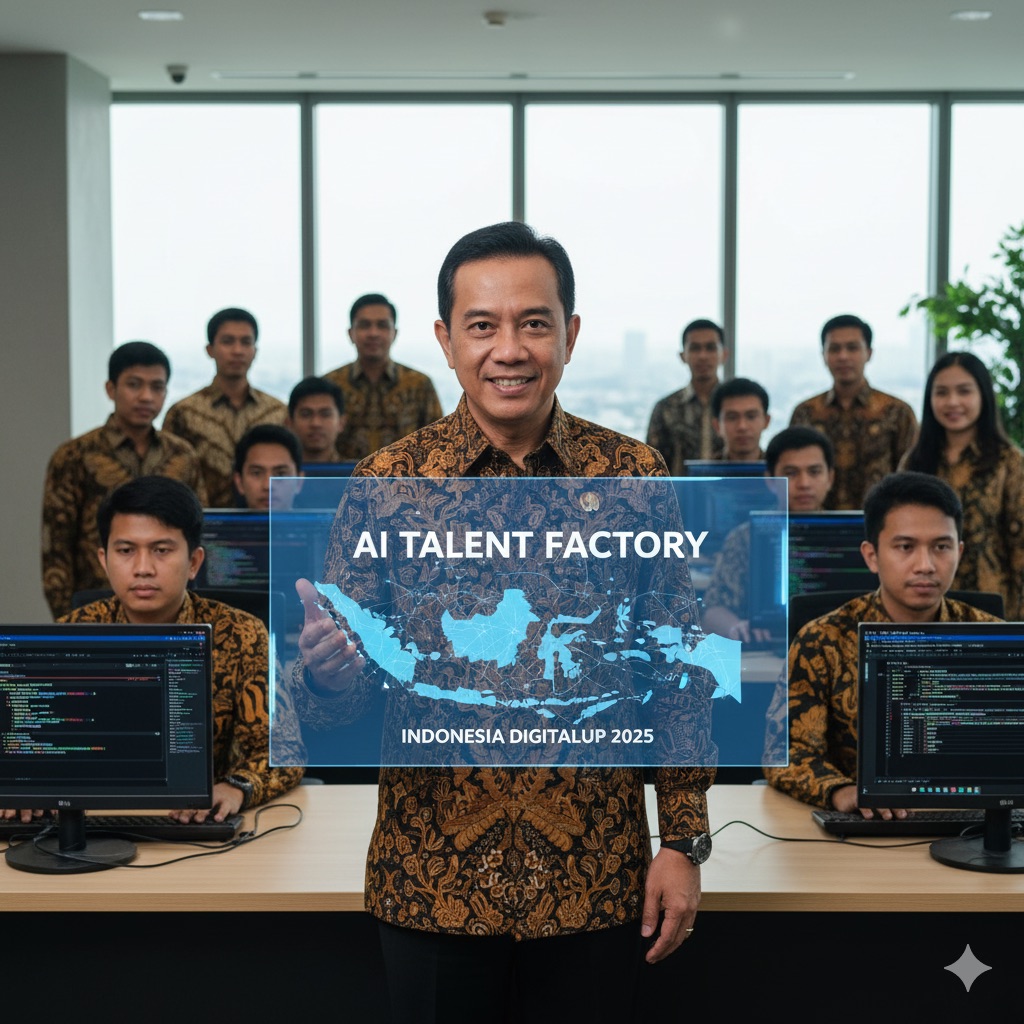The Indonesian government has announced a comprehensive expansion of its ‘AI Talent Factory’ program, targeting the development of an additional 3 million AI professionals by 2030 to drive AI-powered public service innovation. This initiative forms a cornerstone of President Prabowo Subianto’s national digital infrastructure enhancement policy, aimed at establishing data-driven decision-making systems across government programs.
Regulatory Impact and Transformation Requirements
Deputy Minister for Communication and Digital Affairs Nezar Patria announced in Malang that the AI Talent Factory focuses on developing professionals capable of directly implementing AI solutions in core government initiatives, including stunting prevention, free nutritious meal programs, cooperative business model development, and healthcare services.
This policy transcends traditional technical education by emphasizing practical competency development for AI utilization in actual government policy implementation. With the mandated introduction of data-driven decision-making systems across government departments, enhancing AI literacy among civil servants and public sector employees has emerged as an urgent priority.
The government has established specific indicators including adoption rates, ecosystem development progress, and existing infrastructure status to optimize AI utilization systematically.
Compliance Requirements and Safety Framework
The Indonesian government is developing a comprehensive AI utilization framework to prevent negative consequences from inappropriate AI technology usage. Deputy Minister Patria confirmed that “we aim to establish a robust framework for AI utilization to ensure the safety and security of both users and developers, with implementation through presidential regulation.”
This signifies that safety standards and security protocols for AI technology implementation will carry legal binding force. Key compliance requirements are expected to include personal data protection, algorithmic transparency, and bias prevention measures.
Industry Response and Academic-Government Partnership Strategy
The government emphasized that this program cannot be implemented by the ministry alone, identifying collaboration with higher education institutions as essential. Brawijaya University (UB) was selected as the first partner university based on its comprehensive infrastructure and advanced research and development capabilities.
Deputy Minister Patria’s statement that “UB has complete infrastructure and leads in research and development, with other universities following suit” indicates planned nationwide university expansion.
The government is also actively facilitating collaboration with regional governments interested in adopting AI for public services, suggesting the establishment of a triangular cooperation model between central government, local governments, and academic institutions.
International Trends and Digital Sovereignty Enhancement
Indonesia currently possesses 9.3 million digital talents but projects a need for 12 million by 2030. This directly relates to Indonesia’s national strategy to emerge as a leading digital economy nation in the ASEAN region.
The AI Talent Factory expansion is particularly linked to Indonesia’s separately pursued ‘AI Roadmap,’ serving as infrastructure development to achieve the broader policy objective of digital sovereignty enhancement. This represents a proactive response to secure national-level AI competitiveness, similar in context to China’s AI national strategy and Singapore’s Smart Nation policy.
The program’s emphasis on developing domestic AI capabilities while establishing regulatory frameworks reflects Indonesia’s balanced approach to harnessing AI benefits while maintaining technological sovereignty and ensuring responsible AI deployment across public sectors.

